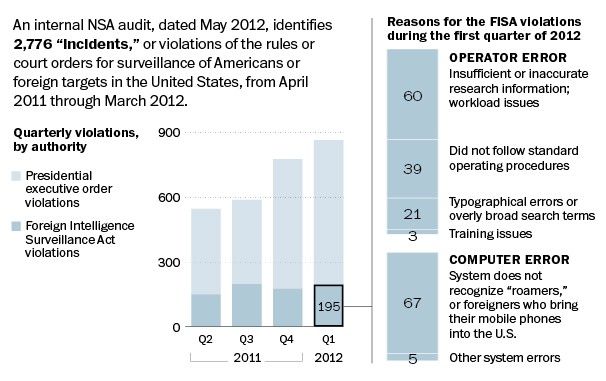“Punting the Pundits” is an Open Thread. It is a selection of editorials and opinions from around the news medium and the internet blogs. The intent is to provide a forum for your reactions and opinions, not just to the opinions presented, but to what ever you find important.
Thanks to ek hornbeck, click on the link and you can access all the past “Punting the Pundits”.
Follow us on Twitter @StarsHollowGzt
Paul Krugman: One Reform, Indivisible
Recent political reporting suggests that Republican leaders are in a state of high anxiety, trapped between an angry base that still views Obamacare as the moral equivalent of slavery and the reality that health reform is the law of the land and is going to happen.
But those leaders don’t deserve any sympathy. For one thing, that irrational base is a Frankenstein monster of their own creation. Beyond that, everything I’ve seen indicates that members of the Republican elite still don’t get the basics of health reform – and that this lack of understanding is in the process of turning into a major political liability.
The New York Times Editorial Board: The Cash Committee
The House Financial Services Committee has grown so large that a highly unusual fourth row of seats had to be installed in the committee room. Every term, scores of members, particularly freshmen, demand a seat on the panel – not because they have a burning interest in regulating banks and Wall Street, but because they know that they will be able raise much more money if one of the 61 seats has their name on it.
As Eric Lipton recently explained in The Times, Financial Services has become known as “the cash committee” because interest groups donate more money to its members than to those of any other House committee. More than $10 million has been given to its members just this year, and most of it has come from the big names the committee oversees. Contributors included employees of Goldman Sachs, Bank of America, the Credit Union National Association, the Investment Company Institute, Wells Fargo and many of the biggest accounting firms and insurance companies.
In every successful struggle there’s a time to celebrate a hard-fought victory. When it comes to Social Security, this is not that time.
It’s true that, after including the “chained CPI” benefit cut in his latest budget, the president seems to have dropped the idea. And it’s true there’s no talk of a “Grand Bargain” on the horizon. But it would still be a serious mistake to become complacent about Social Security.
Even now, in the August heat and summer doldrums, there are stirrings which suggest a deal could be on the way. Washington insiders report that meetings are being held to hammer it out. Republicans are now publicly backing the president’s proposed cuts.
Robert Kuttner: Our Ministry of Planning
The New York Times had a terrific Sunday article on a new waste-to-energy technology that could convert massive quantities of trash into synthetic natural gas. This technology, from isn’t perfect — the product is still a carbon fuel. But unlike hydro-fracking, it doesn’t destroy land and water supplies and it’s a lot cleaner than oil or coal. Earlier versions of such waste-to-energy systems have divided environmentalists, both because they are still carbon and because they use very high temperature incineration, which is frowned upon by many green advocates even when it is clean.
That controversy is all grist for a different article, however. What stood out for me in the Times piece was the client of the new technology — the U.S. Army. Next year, the producer, Sierra Energy, will be supplying waste-produced gas for a small military base in Monterrey, and, if all goes well, to larger installations.
Michael Winship: Cash and Congress: The Tie that Binds
That’s what former Rep. Steven LaTourette told National Journal the other day. He was quoted in an article that asked the question, “Is Congress Simply No Fun Anymore?”
No, it isn’t.
Not that it was ever a vacation trip to Busch Gardens (on his honeymoon, an ex-in-law of mine spent a day at that European-themed park in Virginia and came home convinced he’d actually been to six countries). And certainly no one truly misses the 19th century days when members of Congress thrashed other members with canes (although I can imagine the reality show any day now on The Learning Channel).
But seriously. “Although partisanship is an enduring part of American politics, the type of hyper-partisanship we see now – I can’t find a precedent for it in the past 100 years.” So sayeth Bill Galston, a Brookings Institution senior fellow and co-founder of No Labels, which has herded 82 Democratic and Republican lawmakers into a “Problem Solvers Coalition.” Boy, is that ever the triumph of hope over experience.
Ralph Nader: Paul Volcker’s Latest Hurrah
When towering Paul Volcker speaks, people tend to listen. Formerly the no-nonsense chairman of the Federal Reserve, he proposed measures after the Wall Street crash of 2008 to deal with the “too big to fail” intimidations of the giant banks. With fewer gigantic banks after the Crash, Congress and Obama listened, in some measure, to his ideas for reforms and enacted the so-called Volcker amendment.
Now at age 85, Volcker has launched the Volcker Alliance to improve public administration and implementation of policies and by doing so advance the public interest to improve protections and services for the people. Public trust means more people will participate in governmental decisions and hold government officials responsive and accountable.


 The main purpose our blogging is to communicate our ideas, opinions, and stories both fact and fiction. The best part about the the blogs is information that we might not find in our local news, even if we read it online. Sharing that information is important, especially if it educates, sparks conversation and new ideas. We have all found places that are our favorites that we read everyday, not everyone’s are the same. The Internet is a vast place. Unlike “
The main purpose our blogging is to communicate our ideas, opinions, and stories both fact and fiction. The best part about the the blogs is information that we might not find in our local news, even if we read it online. Sharing that information is important, especially if it educates, sparks conversation and new ideas. We have all found places that are our favorites that we read everyday, not everyone’s are the same. The Internet is a vast place. Unlike “
Recent Comments